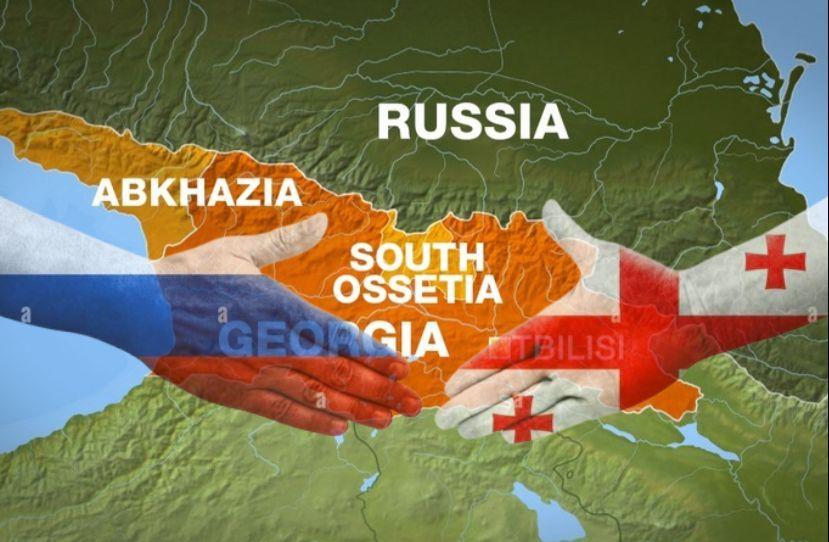
New Chapter In Frozen Conflicts: Georgia's Diplomatic Engagement With Russia
Russian Foreign Minister Sergey Lavrov has expressed Moscow's willingness to facilitate peace between Georgia and the breakaway regions of Tskhinvali (South Ossetia) and Abkhazia. During a press conference following the 79th session of the UN General Assembly, Lavrov remarked:
“It is obvious that the current Georgian leadership is honest about the past. That's what they said: We want historical reconciliation.”
The Georgian authorities responded positively to Lavrov's statement. Kakha Kaladze, the Secretary General of the ruling Georgian Dream party, welcomed the gesture but emphasized the need for“effective steps” from Russia. Meanwhile, Prime Minister Irakli Kobakhidze also expressed optimism, but concrete actions are still being awaited from Moscow.
Experts are skeptical about how feasible reconciliation efforts could be, especially given Russia's vested interests and historical stance on the issue. We decided to explore the opinions of well-known experts for Azernews to gain a more detailed interpretation of the issue and to analyze the developments.
An Election-Time Promise or Genuine Progress?
As the saying goes, there are no permanent friends or enemies in politics.
However, the former Georgian Minister of Education and Science, Gia Nodia, offers a more cynical perspective:
“The statement of the Georgian Dream leaders regarding the prospect of solving Georgia's territorial conflict has no meaning at all apart from the context of the pre-election campaign. Georgian Dream has been in power for 12 years now and has never paid attention to the territorial conflict. It's presumed that nothing can be done in that regard, and nothing has changed.”
He argues that Georgian Dream, led by Bidzina Ivanishvili, introduced the issue merely to stir up new campaign rhetoric:
“Before these elections, they needed some new topic, some new promise, and started to talk about solving territorial conflicts. Moscow's initial reaction was negative, with statements indicating that Abkhazia and South Ossetia are independent states. Lavrov's recent vague offer of mediation doesn't mean much because dialogue alone won't bring them back under Georgia's control. After the elections, this talk will likely fade away.”
Russia's Influence and Tbilisi's Calculations
Moscow-based analyst Andrew Korybko provides a broader geopolitical context, noting the critical role Russia plays in the conflict:
“Lavrov's hint at mediation carries weight because Russia wields significant influence over Abkhazia and South Ossetia. However, Tbilisi still views these regions as occupied by Russia. Georgian Dream's Secretary General Kakha Kaladze is likely signaling that Russia should withdraw its forces as a goodwill gesture-something Moscow is unlikely to do, as it would be seen as a betrayal by the two regions.”
Korybko also underscores the military dynamics involved:
“Georgia has modernized its military with NATO's assistance, but Russia's presence in these regions acts as a deterrent. Any withdrawal would leave Russia vulnerable to accusations of abandoning its allies and could embolden Georgia to take military action.”
He further emphasizes that the ruling Georgian Dream party has taken a cautious stance, contrasting Georgia's situation with Ukraine's:
“Georgian Dream has repeatedly warned against opening a second front against Russia, knowing that military attempts to resolve the conflict could backfire. Instead, the most realistic option lies in gradual reconciliation through socio-economic cooperation under Russia's mediation, though progress will take years.”
Parallels with the Garabagh Scenario?
Ilyas Huseynov, a political expert, draws comparisons between Georgia's situation and Azerbaijan's success in reclaiming its territories:
“In Georgia's case, the coming elections are crucial, as they will shape the country's geopolitical direction. The West and Russia are competing to strengthen their influence in Georgia, adding complexity to the conflict. There is already serious media discussion about ensuring Georgia's territorial integrity, much like Azerbaijan's efforts to liberate Garabagh.”
Huseynov highlights that dialogue with Russia could be key to Georgia's sovereignty ambitions:
“The Georgian Dream party and its leader, Ivanishvili, appear committed to engaging in dialogue with Russia to ensure control over the entire territory. However, the political dynamics remain delicate, and Russia's loyalty to the separatists adds another layer of difficulty.”
He also notes internal divisions within the separatist regions:
“The absence of financial support from Russia has caused discontent among the separatists, who understand that the Kremlin might change its course. Still, Moscow is unlikely to compromise on these regions, as it seeks to maintain influence over them.”
For now, the latest developments suggest that while Russia's mediation offer holds symbolic importance, meaningful progress remains uncertain.
Legal Disclaimer:
MENAFN provides the
information “as is” without warranty of any kind. We do not accept
any responsibility or liability for the accuracy, content, images,
videos, licenses, completeness, legality, or reliability of the information
contained in this article. If you have any complaints or copyright
issues related to this article, kindly contact the provider above.


















Comments
No comment